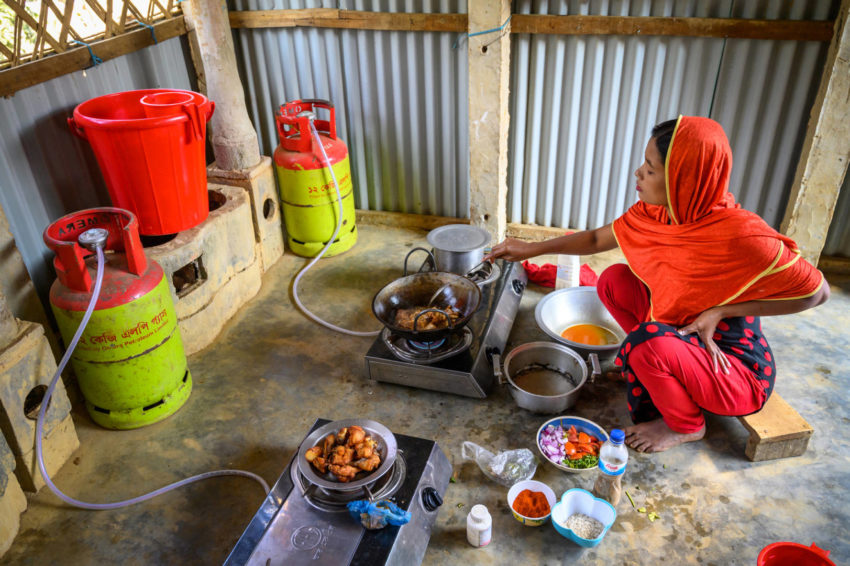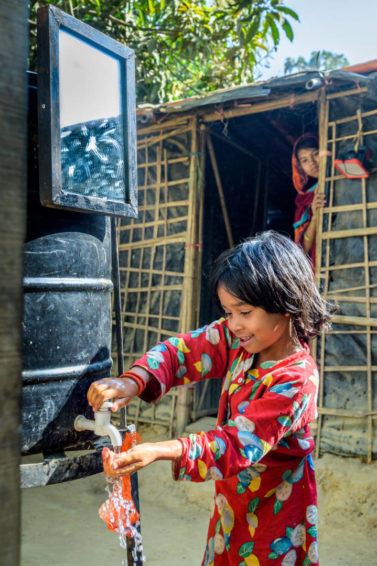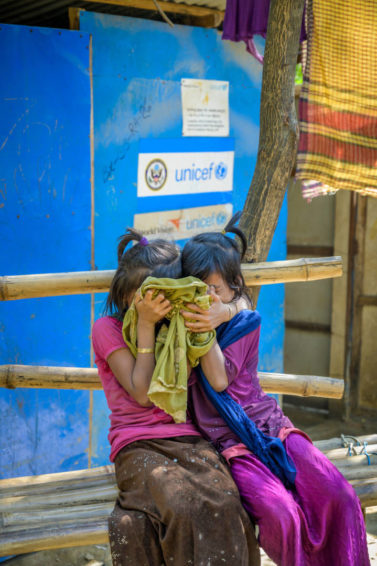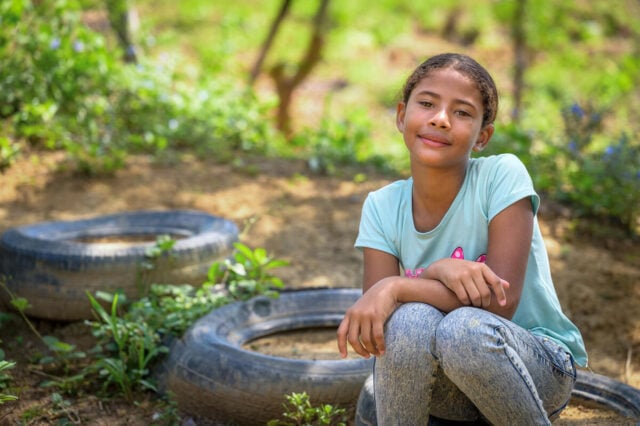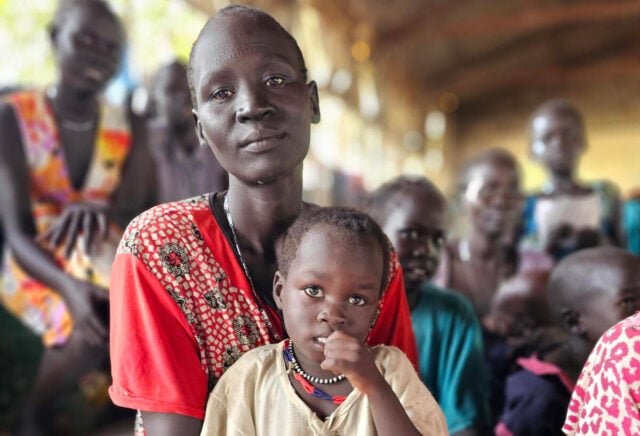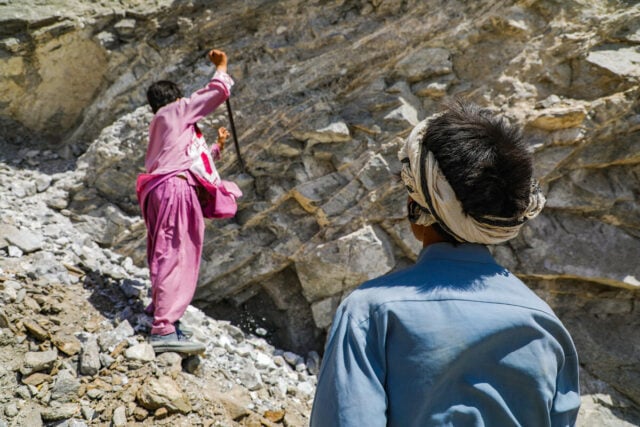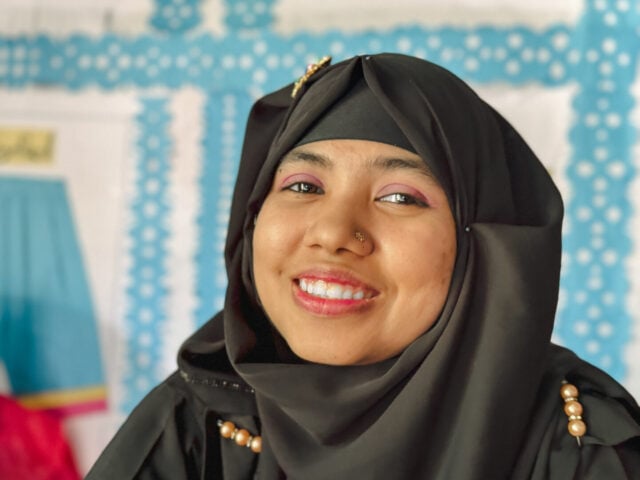Every day of the year, World Vision works around the world to help refugees in need, as 70.8 million people have been forcibly displaced from their homes. Massive numbers of refugees have left Syria, Myanmar, South Sudan, Afghanistan, the Democratic Republic of the Congo, and Venezuela. More than half of the world’s refugees are children.
Through innovative responses to these crises, World Vision is investing in a better life today and a better future for refugees, especially children. Learn about the unique solutions World Vision implements in refugee camps.
Last Mile Mobile Solutions
Last Mile Mobile Solutions, developed by World Vision and now being used by more than a dozen other organizations, is revolutionizing how refugees and disaster survivors receive food, cash assistance, and relief supplies in their time of greatest need.
With this innovative software, aid workers quickly register beneficiaries and record their names, pictures, locations, and eligibility for assistance — all on a smartphone. Information is then transferred to a computer for verification and tracking. The same process that used to take four minutes now takes four seconds, shortening lines and getting essentials to families faster.
Overall, Last Mile Mobile Solutions improves the accuracy of remote data collection, helps manage aid recipients’ information, enables faster and fairer aid distributions, and delivers real-time reporting to aid workers.
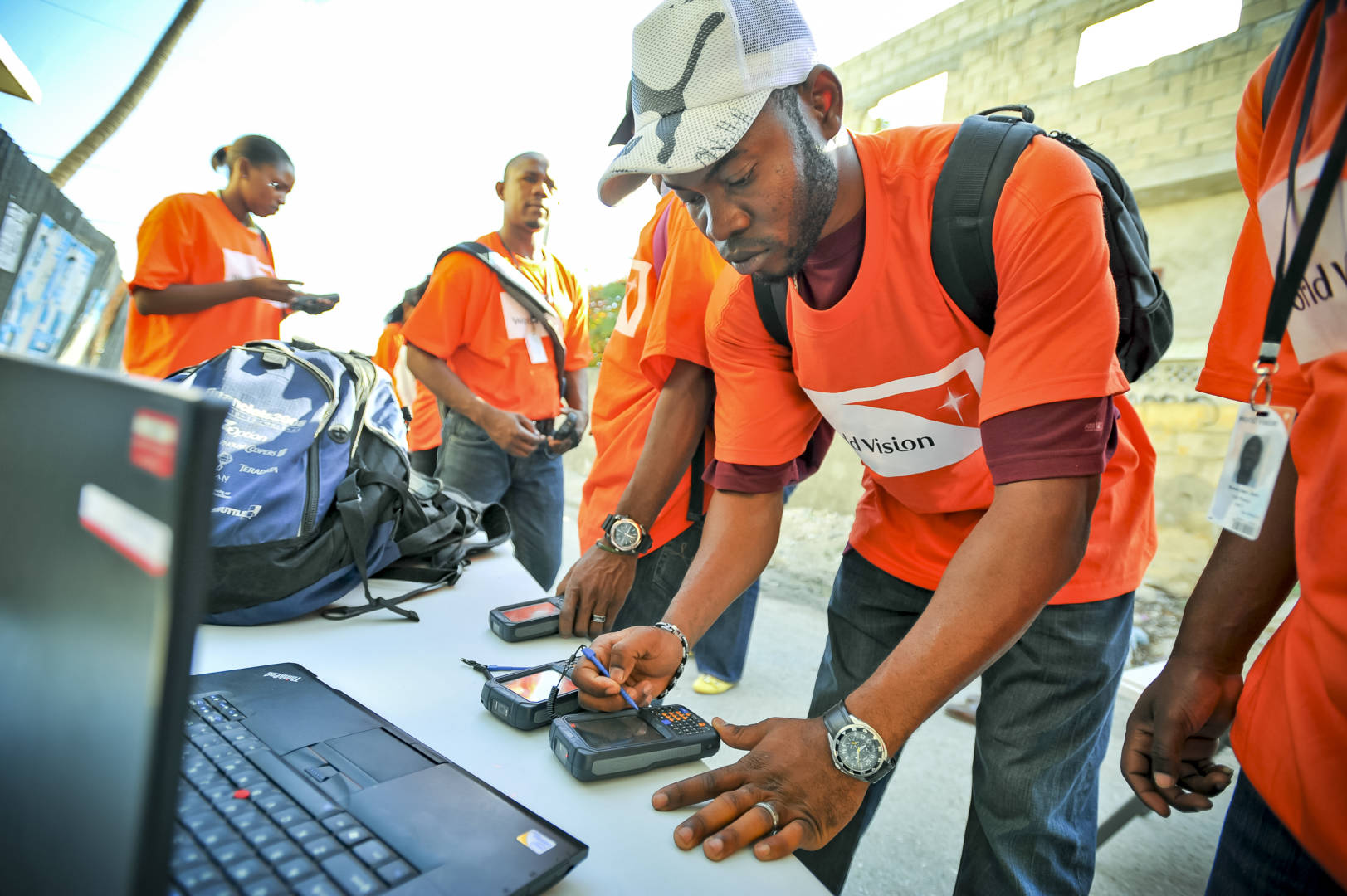
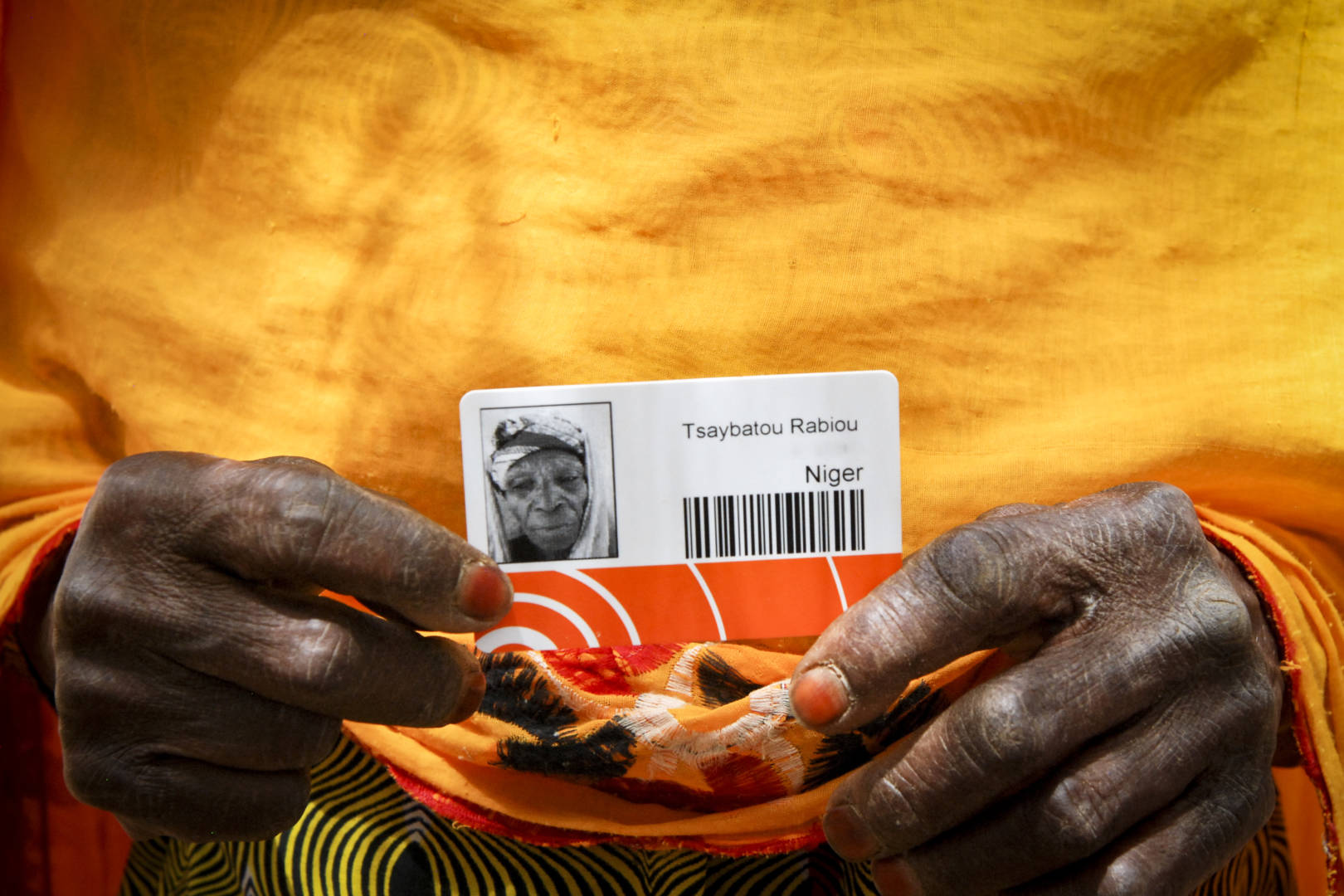
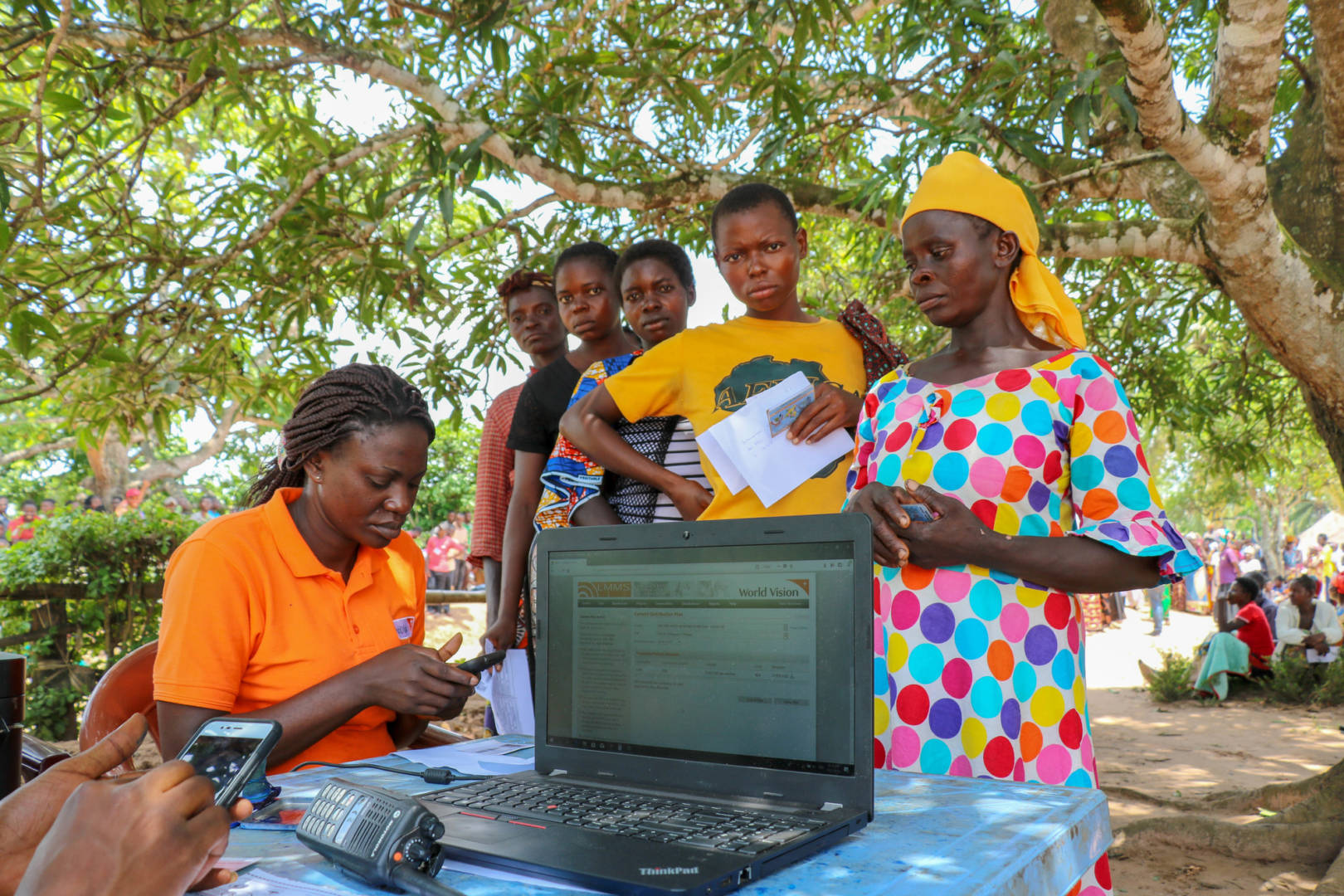
Community kitchens
World Vision is privileged to provide not only life-saving interventions, but also innovative solutions that provide hope. Community kitchens equipped with gas stoves help refugee moms feed their families nutritious food without having to cut, carry, or buy firewood, and they also help avoid the dangers of open-fire cooking.
“We are also training them to cook nutritious food [and about] hygiene,” says Subash Chandranath, a World Vision staff member who works at a community kitchen in Bangladesh. “We teach how to cook the [food] properly — to wash [vegetables] first.”
But community kitchens are so much more than a safe place to cook. Through World Vision workshops, staff help women learn how to be leaders in their communities, empowering them to solve problems and make good decisions for their families.
Community kitchens also serve as gathering places where women can share concerns. “We have independence here,” says Muhcena, a Rohingya refugee who visits the kitchen daily.
Hand-washing stations with mirrors
Overcrowded conditions and limited access to water, sanitation, and hygiene facilities put refugees at high risk for communicable disease outbreaks, including diarrhea and hepatitis. Regular handwashing with soap greatly reduces the risk of disease.
Installing mirrors at hand-washing stations has been shown to increase handwashing among children and adults. Because most refugees don’t have mirrors in their simple shelters, they are drawn to the shiny surfaces. Placing them on the water barrels at hand-washing stations draws people — especially children — to the mirror, which reminds them to wash their hands.
“We all know how important it is to wash our hands to stay healthy, but for children like this in a refugee camp, it can make the difference between life or death,” says Rachel.
Solar-powered lights
Good lighting can help keep people safer in a refugee camp where there is no electricity. Nighttime can be particularly dangerous for women and children who must walk to outdoor latrines and wash areas after dark.
That’s why World Vision has installed solar-powered lights in places like the world’s largest refugee camp in Cox’s Bazar, Bangladesh.
“When World Vision started working with these refugees, women told us, again and again, that they needed to feel safe at night using the bathroom and using bathing facilities,” says Response Director Rachel Wolff. “World Vision has installed solar-powered street lights across the camps, particularly where women need to bathe and use the bathroom so that anytime, day or night, girls and women feel safe.”
Kari Costanza, Heather Klinger, and Kathryn Reid of World Vision’s staff in the U.S. contributed to this article.
